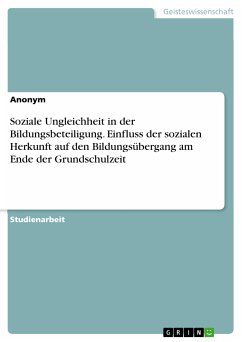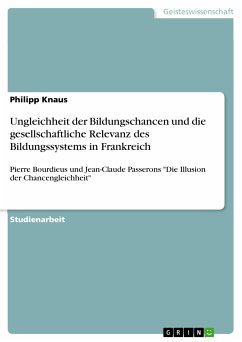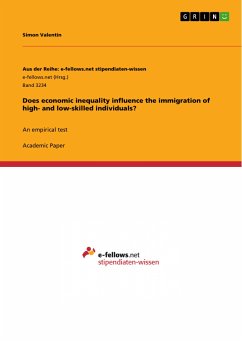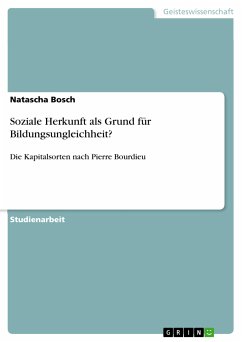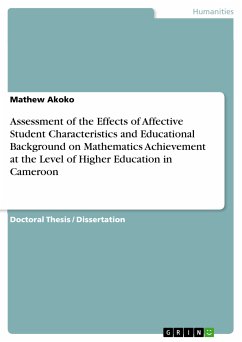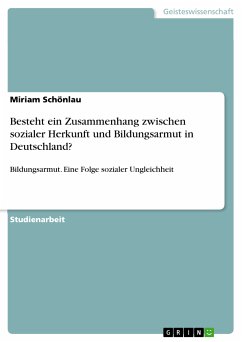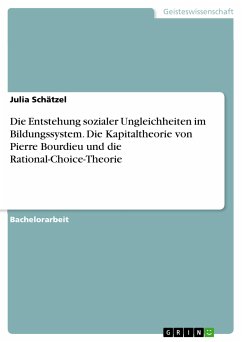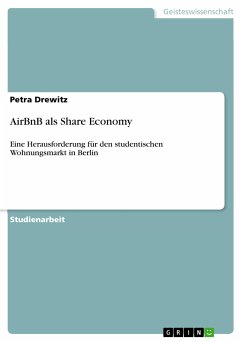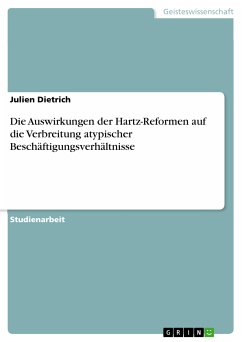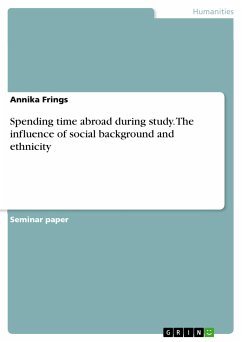
Spending time abroad during study. The influence of social background and ethnicity (eBook, PDF)
Sofort per Download lieferbar
Statt: 17,95 €**
13,99 €
inkl. MwSt. und vom Verlag festgesetzt.
**Preis der gedruckten Ausgabe (Broschiertes Buch)
Alle Infos zum eBook verschenkenWeitere Ausgaben:

PAYBACK Punkte
0 °P sammeln!
Seminar paper from the year 2013 in the subject Sociology - Work, Education, Organisation, grade: 1,7, University of Cologne, language: English, abstract: This paper deals with the topic of students' abroad experience during study and aims at analysing how the study abroad decision gets influenced by social background and ethnicity. The hypothesis is that students whose parents have a degree of higher education themselves do more often spend time abroad during study than those with parents that do not own a degree of higher education. This is due to the fact that parents with a degree of terti...
Seminar paper from the year 2013 in the subject Sociology - Work, Education, Organisation, grade: 1,7, University of Cologne, language: English, abstract: This paper deals with the topic of students' abroad experience during study and aims at analysing how the study abroad decision gets influenced by social background and ethnicity. The hypothesis is that students whose parents have a degree of higher education themselves do more often spend time abroad during study than those with parents that do not own a degree of higher education. This is due to the fact that parents with a degree of tertiary education are more likely to have higher earnings and can financially support their children. Universities encourage their students to participate in exchange programs and offer the impression that an exchange semester is an urgent part of study to get the most favorable jobs. The number of students that have spent time abroad during study has increased within the past years. In the year 2008 103.000 German students have studied at an university in a foreign country, this is an increase of 13 % compared to the data from 2007. The increase is even higher when looking at the development between 2001 and 2008, during this period of time the data even show an increase of 93 %. But there's still evidence that a gap remains between students with different social backgrounds in the likeliness to take part in exchange programs.
Dieser Download kann aus rechtlichen Gründen nur mit Rechnungsadresse in A, B, BG, CY, CZ, D, DK, EW, E, FIN, F, GR, HR, H, IRL, I, LT, L, LR, M, NL, PL, P, R, S, SLO, SK ausgeliefert werden.




